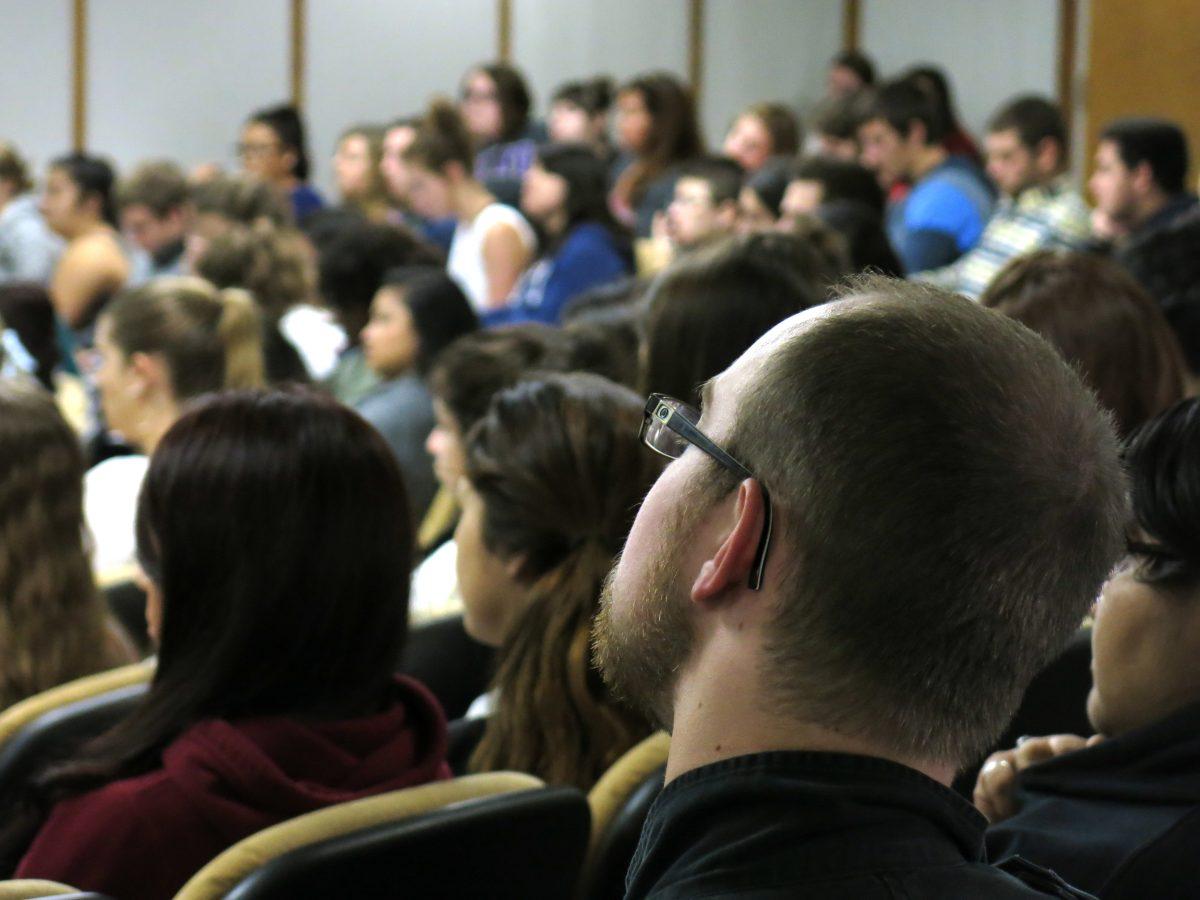When one thinks about sex-ed, what comes to mind? Condoms? Birth Control? Penis? Vagina? Alexandra Kelner is knowledgeable when it comes to the topic. In fact, she created her own program to reinvent the sex education experience for young children.
Kelner is the director of health education at Alliance Medical Center. She received her bachelors from Indiana University Bloomington in human sexuality and her masters at CSU East Bay in sexuality and social justice. She now runs her own program at Alliance Medical Center in Healdsburg.
Kelner delivered a presentation in Stevenson 1002 on Thursday about sexual health and why it should be framed positively.
In most classroom settings, sex and the “sex talk” is framed as being a very negative issue. The talk is usually a problem in the classroom and risk focused and makes sex seem inherently scary.
Kelner completely disagrees with this approach and this is what made her motivated to create a program that didn’t focus on the negative aspects of sex.
“Sexual health encompasses much more than just the prevention of disease and unintended pregnancy,” said Kelner. “Issues of pleasure, autonomy, interpersonal relationships and young people’s connections with larger social constructs are often ignored in the classroom.”
Alliance Medical Center’s Comprehensive Sexuality Education seeks to address these gaps to account for the variation of lived sexual experiences of youth and to further youth empowerment toward health and wellness. The program focuses on identity and allowing sexual interaction as an available subject to talk about.
Kelner believes the Sonoma State University community is ready for this type of content. She stressed that students are extremely lucky to be going to school in such an accepting community. However, Kelner also informed the audience that the average age of a perpetrator of rape in Sonoma County is 16 years old.
Due to this, she believes it’s imperative to teach the public about facts like these.
Some of the core topics the Comprehensive Sexuality Education program incorporates into their lessons are issues on social justice. These concepts include gender, class, race, sexual orientation, age and much more.
With the flexibility of this program, Kelner is able to incorporate these topics into the classroom dialogue when talking about sexual education.
Interestingly enough, Kelner admitted to a few faults in her program.
“It is not perfect,” said. Kelner, ”but we are working to always make improvements.”
She believes the photos used in her presentation slides should look more realistic. In addition, instead of all of the people being white, she thinks there should be more diversity to fairly represent the world’s population today.
“I attended this lecture because I think it is really important to have safe sexual education courses,” said junior Lee Reinertson. “Without them, young adults are not educated on the consequences of unsafe sex and can be misguided easily.”
Teaching young kids about sex education and social justice has been a staple part of Kelner’s life.
“I have been teaching kids since I was 19 years old,” said Kelner. “In a way, they keep me from forgetting how important this topic is.”
Kelner never expected to find herself in this career. She started working in the field to pay off some of her student loans and soon fell in love with the topic. In the past, she worked for companies like Verity and STAND for Families Free of Violence.
Her positions ranged from a Community Education Manager to the Title X Manager at the teen clinic at Verity.



































